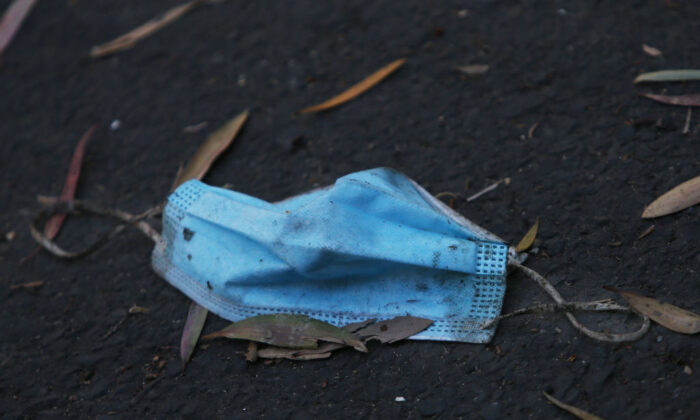People travelling to Australia will no longer be required to wear masks, one week after the government dropped the mask mandate for domestic flights.
The move, which takes effect on Sept. 9, comes as COVID-19 restrictions continue to be axed across the nation.
Federal Health Minister Mark Butler said the mask mandate was removed on the advice of the Chief Medical Officer that it is “no longer proportionate in the current context.”
“The requirement to wear masks on international flights to Australia was first implemented in January 2021 to reduce the risk of transmission of COVID-19 on board flights,” he said.
“I encourage everyone travelling overseas to be mindful of the continuing risk of COVID-19 and to take personal precautions to stop the spread and stay safe.”
Under the new rules, travellers who tested positive for COVID-19 with no symptoms will need to isolate for five days.
Meanwhile, workers in aged, disability and home care still need to isolate for seven days, regardless of whether they are symptomatic or not.
It comes as Australian states and territories will no longer publish daily updates on COVID-19 cases, with Health Minister of the Australian Capital Territory (ACT) Rachel Stephen-Smith deeming it “not as important as it was.”
“The winter wave of COVID-19 has passed, and we have reached a stage in the pandemic where daily reporting is not as important as it was,” she said in a statement.
The federal government will instead issue weekly data on new cases, deaths, hospitalisations and ICU admissions, with the first weekly report to be released on Sep. 16.
“Of course, if there are any developments of concern, the Government will alert the community,” Stephen-Smith said.
Pandemic Leave Disaster Payment rules have changed to reflect the minimum isolation period for anyone applying.
More than 8000 new COVID-19 cases and 135 deaths were reported across Australia on Friday, including dozens of historical deaths from Victoria and South Australia.
As demand for travel grows, the cost of domestic airfares is peaking, with Australia’s consumer watchdog revealed it has more than doubled since April.
“After about 18 months of historically low airfares, the cost of domestic flying has risen sharply in response to strong demand, temporary capacity reductions and very high jet fuel prices,” ACCC Chair Gina Cass-Gottlieb said in a media release on Sep. 7.
“Discount economy airfares in August were at their highest point in almost two years.”
“In these circumstances, more than ever, the level of competition between airlines is incredibly important to maintain pressure on ticket prices and service levels across the industry.”
AAP contributed to this report.
Source: The Epoch Times



